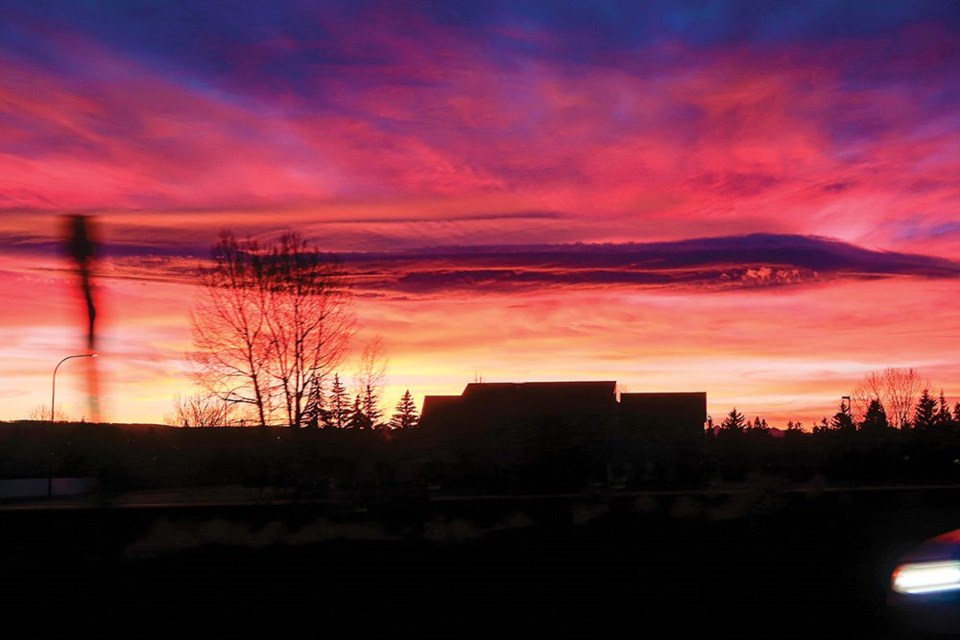A dark and dusky beauty, discouraged, beaten, chin down, eyes averted—a 15-year-old whom, for this story, we’ll call Julie. I wanted to reach deep into her being to find bells to ring, to celebrate her beauty, the promise of lovely womanhood.
It was a promise betrayed: a drunken father, hopeless mother; society out to use and abuse, despoil and toss aside. Social workers picked her up too many times, drunk, cold, on the streets. They sent her to our group home in Cochrane.
She moved obediently and dully through her first days at the home, not like others who sometimes fought, yelled, or defied. Her face was a mask, sullen, but protective. A social worker told us the First Nations girls showed no emotion, but she didn't see behind their masks.
Julie wore emptiness. Only the piano and singing would briefly awaken her spirit and ease her expression. Her heart was lovely. Even given her hard life, she still had compassion. When seeing starving, homeless children on TV, she shed tears while many girls remained cold. But she ran away in the middle of the night. She hitchhiked and later, laughing, said Rinty, our beloved dog, kept her safe until she got picked up by a passing driver. The police put her on CPIC, but they didn't locate her. I felt her despair and didn't want to think of what would happen to her.
Two days later, my husband and I had an appointment with social services in Kirkland Lake, coincidentally Julie's hometown. We didn't expect to see her, since our meeting concerned something else. (Later we learned that runaways usually went to their hometown, regardless of their unhappy history.)
Because the social worker postponed our appointment, we went to Peter's Café, with dirty white stalactites hanging from the ceiling and lava lamps on the counters. We relaxed over coffee. John whispered, “Look over to your right.” And there she was, but not alone. The older guy and the love bites on her neck told their story.
I walked over and tapped her on the shoulder.
“Hello, Julie.”
Looking both astonished and shocked, she thrust her chair violently back and took off running. John, barefoot, sandals under our table, chased her down the street, yelling, “Stop that girl!”
No one did. Julie was strong, but John was still young and kept after her, dodging people and sprinting through red lights. Finally, after dashing through Zellers, she stopped in a backlot, winded. Later she told me, “When you touched my shoulder in the restaurant, I felt like God had reached down and grabbed me.”
While I waited, I told the love-bite man that Julie was underage. Shocked, he left quickly. We knew what he fancied; what she wanted was to be loved and held. I saw a flashing red light outside—police. They told me John and Julie were at the courthouse. There we sat by a thoroughly dejected Julie as she waited for her social worker. “Would you like a cigarette?” we asked the much-addicted girl. Not a healthy move, but we got a tiny smile.
“Would you like a visit with your mother before we return home? Maybe you can see your new baby sister.” We got a big smile.
Fat, worn, old, grey-haired, with two lonely teeth, her mother was 35, my age. A chubby new half-sister for Julie rode on her hip, its father hiding in the bedroom. The mother had loved her children, but six of them, and a drunken husband, had been too much. She had abandoned her first family. Now she had a new man and was starting over. No room for Julie. I grieved, sighed, and soon we left to drive home.
The trip was a quiet one. Julie seemed to realize there was no place for her in her mother's life anymore. We talked about her family and our plans for her in the group home. She was quiet but not sullen. I thought about the short time we had to make a difference. Just three months. No gentle easing into therapy. No long-term treatment. Only some reality therapy, a good program, and love. She, like her mother, was old, tired and worn out—at 15.
“No, you are not a whore, although you give it away to strangers. Let's change that. You are not worthless, even if people treat you that way. You are a beautiful creation, made by God and so very worthwhile. Oh, honey,” I said, “You can reject everything we give to you except two things, well, actually three things. The first is God's love. The second is our love. The third is the opportunity to see what a loving family looks like.”
She quickly got through all the program levels and did well at school. She was helpful, loved the nature walks, liked to play with our small children, listened to music and participated with the other girls, especially on pizza night, down in the rec room. She was a sweet and willing helper. Smiles came a little more frequently, but we knew she carried heavy memories and sorrow.
As she blossomed, we worried about her future. Upon leaving the group home, the social workers allowed her to move in with her boyfriend's family. Our other girls said he was reputed to be the local drug dealer. We hoped not. We left Cochrane a year later; we tried to trace her but failed.
Oh, Julie, we pray you have found a happier life. All these years later, I still sometimes weep for you, for all the rejection. I cry for the years when you should have been growing up young and clean and cared for and happy. I still remember thinking, “Cry, honey—let me hold you instead of your mother. Oh baby, where was the love all this time that you weep such young and such old tears on me?”
Her name was Julie. I loved her. ◆



